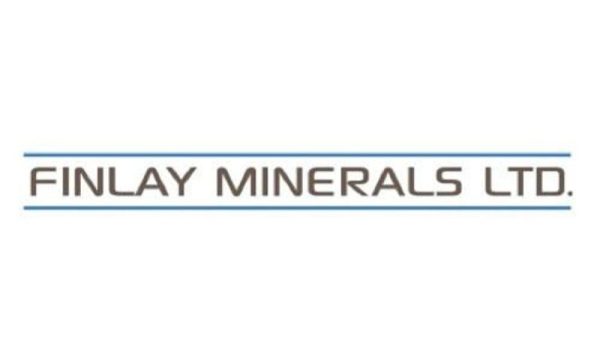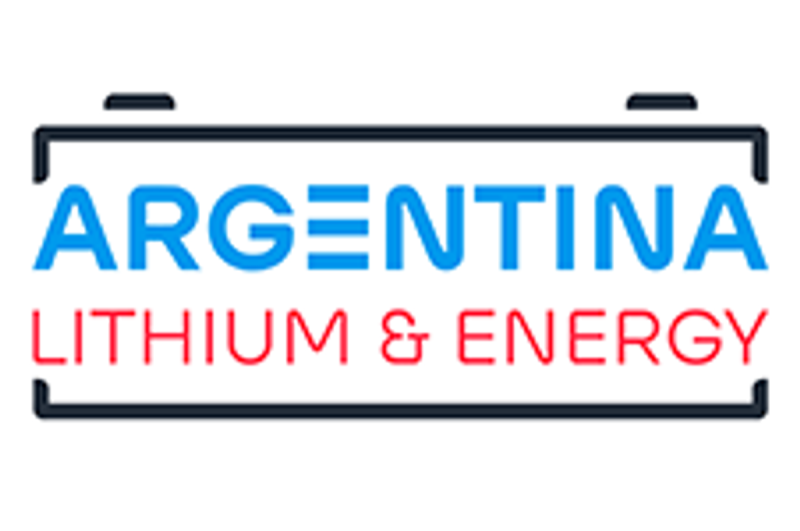TSX Venture Exchange (TSX-V): LIT
Frankfurt Stock Exchange (FSE): OAY3
OTCQX Venture Market: LILIF
Argentina Lithium & Energy Corp. (TSX-V: LIT) (FSE: OAY3) (OTCQX: LILIF) (‘Argentina Lithium’ or the ‘Company’) reports positive results from the tenth and eleventh exploration holes at its Rincon West Project in Salta Province Argentina . Samples collected over a 295.5 m section of RW-DDH-010 ranged from 245 to 366 mgl lithium. Samples collected over a 321 m section of RW-DDH-011 ranged from 246 to 344 mgl lithium.
‘Our tenth exploration hole was situated to test the continuity of the brine aquifer as our drilling extends eastward into the main salar basin. These results demonstrate continued strong grades and an exceptional interval length. For our eleventh hole, we moved 2.7 kilometres to the southeast, to test the salt flat in the southern and eastern portion of our main block at the Rincon West project. This produced another long interval of concentrated brines and recovered cores containing fractured crystalline halite and coarse, poorly cemented sediments, which may be excellent formations for pumping potential. We were not able to reach the bottom of the basin formation in the eleventh hole. We plan to extend our ongoing drilling to greater depths, with the objective of drilling into basement rock and defining the bottom of the aquifer.’ stated Miles Rideout , V.P. of Exploration.
The results including sampling method, the sample interval data and the brine analyses for RW-DDH-010 and RW-DDH-011 are shown in Tables 1 and 2 respectively. Drill collar information is presented in Table 3. An extensive selection of samples has also been sent for brine recovery testing at an independent laboratory; results are awaited.
The Rincon West Project covers 5198.8 hectares of the salar basin, consisting of three property blocks adjacent to Rio Tinto’s Rincon Project. Drill holes RW-DDH-010 and RW-DDH-011 represent the first two holes of the 6-hole program planned for the Rinconcita II property, announced in the Company’s October 19, 2023 News Release. The Rinconcita II property represents a continuous extension of the sandy western basin at Rincon West, eastwards over the Rincon salt flat.
Figure 1 presents a map of the western (main) block of the Rincon West project showing the positions of eleven completed exploration holes (see News Releases dated July 13, 2022 , October 3, 2022 , October 25, 2022 , January 26, 2023 , April 24, 2023 and May 31, 2023 ). The drill locations are overlain on the conductive zones (yellow shading) delineated by two geophysics campaigns (see News Releases dated May 2, 2022 and October 19, 2023 ).
Table 1: Interval data and results of brine analyses for lithium, potassium, and magnesium for drill hole RW-DDH-010 *
Sample Interval (m)
Sample Method
Li
K
Mg
Density
From
To
Thickness
(mg/litre)
(g/ml)
RW-DDH-010
31.5
36.5
5.0
Single packer
102
1766
1601
1.066
39.5
42.5
3.0
Single packer
47
910
925
1.035
51.5
54.5
3.0
Single packer
58
1113
798
1.04
57.5
60.5
3.0
Single packer
131
2461
1469
1.087
63.5
66.5
3.0
Single packer
245
4262
2403
1.153
69.5
72.5
3.0
Single packer
294
5240
2907
1.176
75.5
78.5
3.0
Single packer
230
4087
2142
1.143
81.5
84.5
3.0
Single packer
275
4859
2565
1.165
87.5
90.5
3.0
Single packer
269
4824
2385
1.159
93.5
96.5
3.0
Single packer
343
6206
2925
1.201
141.5
144.5
3.0
Single packer
251
4530
2200
1.149
153.5
156.5
3.0
Single packer
351
6565
3015
1.204
159.5
162.5
3.0
Single packer
342
6389
2925
1.197
165.5
168.5
3.0
Single packer
366
6961
3075
1.212
171.5
174.5
3.0
Single packer
354
6709
2992
1.207
177.5
180.5
3.0
Single packer
365
6968
2999
1.21
183.5
186.5
3.0
Single packer
363
6923
3000
1.215
189.5
192.5
3.0
Single packer
353
6849
2929
1.215
192
196
4.0
Double packer
354
6824
3062
1.211
265.5
294.5
29.0
Single packer
325
6266
2766
1.194
310
314
4.0
Double packer
364
7122
3071
1.21
319
323
4.0
Double packer
360
6932
3072
1.211
333
337
4.0
Double packer
354
6767
3045
1.21
344
348
4.0
Double packer
350
6752
3019
1.209
355
359
4.0
Double packer
323
6185
2797
1.196
Table 2: Interval data and results of brine analyses for lithium, potassium, and magnesium for drill hole RW-DDH-011*
Sample Interval (m)
Sample Method
Li
K
Mg
Density
From
To
Thickness
(mg/litre)
(g/ml)
RW-DDH-011
12.5
15.5
3.0
Single packer
156
3183
2312
1.123
24.5
27.5
3.0
Double packer
264
5140
3393
1.18
30.5
33.5
3.0
Double packer
262
5327
3040
1.202
36.5
38.0
1.5
Double packer
256
5265
2929
1.196
54.5
57.5
3.0
Single packer
279
5885
2896
1.214
60.5
63.5
3.0
Single packer
276
5779
2857
1.211
66.5
69.5
3.0
Single packer
275
5855
2874
1.208
72.5
75.5
3.0
Single packer
281
5979
2792
1.209
78.5
81.5
3.0
Single packer
280
5956
2862
1.207
84.5
87.5
3.0
Single packer
315
6748
2963
1.216
90.5
93.5
3.0
Single packer
320
6801
2997
1.215
96.5
99.5
3.0
Single packer
293
6249
2897
1.208
102.5
105.5
3.0
Single packer
321
6841
3013
1.213
108.5
111.5
3.0
Single packer
313
6639
2937
1.204
114.5
117.5
3.0
Single packer
286
6096
2777
1.194
120.5
123.5
3.0
Single packer
295
6279
2820
1.196
126.5
129.5
3.0
Single packer
296
6226
2768
1.197
132.5
135.5
3.0
Single packer
317
6680
2905
1.2
138.5
141.5
3.0
Single packer
303
6437
2846
1.203
144.5
147.5
3.0
Single packer
299
6381
2837
1.202
150.5
153.5
3.0
Single packer
299
6197
2850
1.205
156.5
159.5
3.0
Single packer
292
6029
2722
1.195
168.5
171.5
3.0
Single packer
315
6280
2856
1.208
174.5
177.5
3.0
Single packer
302
6356
2890
1.209
180.5
183.5
3.0
Single packer
292
5826
2693
1.209
186.5
189.5
3.0
Single packer
274
5896
2739
1.208
192.5
195.5
3.0
Single packer
275
5908
2679
1.205
210.5
213.5
3.0
Single packer
246
5391
2431
1.202
240.5
243.5
3.0
Single packer
278
5697
2741
1.215
276.5
279.5
3.0
Single packer
335
6890
3032
1.218
282.5
285.5
3.0
Single packer
338
7004
3035
1.219
288.5
291.5
3.0
Single packer
334
6966
3062
1.216
336.5
339.5
3.0
Single packer
344
6971
3028
1.218
342.5
345.5
3.0
Single packer
319
6537
2865
1.212
*Both drill holes were inclined vertically; the brine hosting strata are believed to be flat lying resulting in reported intervals approximating true thickness.
Both RW-DDH-010 and RW-DDH-011 were executed with HQ-diameter diamond drilling, permitting the extraction of core samples of the salar basin formations and the recovery of brine samples where possible.
Drilling was carried out by Salta-based AGV Falcon Drilling SRL, under the supervision of Argentina Lithium’s geologists.
Table 3: Collar and maximum depth information for RW-DDH-010 and RW-DDH-011
Hole ID
East
North
Elevation
Azimuth
Dip
Depth
UTM Zone 19S (WGS84)
(m)
(deg.)
(deg.)
(m)
RW-DDH-010
683150
7337904
3743
n/a
90
401.0
RW-DDH-011
685111
7336135
3720
n/a
90
356.0
LIT’s preferred method for brine sampling deploys a ‘single packer’ sampling unit during drilling. The packer sampling method allows the recovery of brine samples at specific depths while sealing the hole at the top and bottom of the interval. For single packer sampling, an inflatable seal closes the top of the interval; the lower limit of drilling represents the bottom of the interval. In certain instances, double packer sampling is conducted following the completion of drilling. In this case, inflatable seals are employed to close both the top and bottom of the sample interval. The maximum span of double packer sampling is limited to less than 4 m by the height of the drill mast and other equipment limitations.
Geophysical profiling and lining the hole with 2′ diameter PVC filters was completed for both holes. All core samples recovered in drilling were retained for geologic logging.
RW-DDH-010 extends drilling eastwards from previous holes, towards Rincon salt flat. The hole was completed to 401.0 m depth and a total 24 brine samples using the single and double packer method were collected and submitted for analysis. Samples collected between 63.5 m depth and 359.0 m depth (the deepest sample collected) ranged from 245 to 366 mg/l lithium. Over this 295.5 m interval 21 single and double packer brine samples were collected from intervals totalling 95.0 m , representing 32.1% of the total interval.
From surface to 23 m , gravels with a sandy-clayey matrix were drilled. No core was recovered between 23 and 27.5 m . From 27.5 to 52.5 m , red and brown sandy sediments were logged. Fine and medium black sands were drilled between 52.5 and 109 m . From 109 to 162.5 m , grey and brown sands were observed. A single 20 cm clay layer was observed within this interval. A sequence primarily composed of sandy breccias was drilled between 162.5 and 197 m , though no core was recovered between 179 and 180 m . From 197 to 313.7 m , multiple units of brecciated ignimbrite were drilled, typically containing angular lithic clasts. From 313.7 to 317.7, altered breccia was observed, containing infrequent black veinlets with pyrite. Between 317.7 and 353 m , the hole intersected altered andesite with barite veins, followed by 5 m of hydrothermal breccia with traces of pyrite. From 358 to 362 m , altered andesite was drilled. Between 362 and 373 m dacitic, rhyolitic and rhyodacitic porphyry units were logged, followed by a hydrothermal breccia. Then from 378 m rhyodacitic and rhyolitic porphyry units were observed, extending the end of the hole at 401 m .
RW-DDH-011 is situated to investigate the basin below the salt flat at the southeast corner of the project area. The hole was drilled to 356.0 m depth and a total 34 brine samples using the single and double packer method were collected and submitted for analysis. Samples collected between 24.5 m depth and 345.50 m depth (the deepest sample collected) ranged from 246 to 344 mg/l lithium. Over this 321.0 m interval 33 single and double packer brine samples were collected from intervals totalling 97.5 m , representing 30.4% of the total interval.
Medium-grained, brown quartzose sands were recovered from near surface to 36.5 m . Drilling from 36.5 to 45 m featured poor recoveries, showing mainly medium-sized gravels. From 45 to 62 m , the drill intersected medium brown sands. From 62 to 113 m , brown sandy breccias were recovered. No core was recovered between 113 and 114.5 m , then coarse gray and grayish-brown sands were drilled to 161 m . Between 161 and 213.5 m the drill cored crystalline halite with an alternating distribution of solid formation and of sections with parallel fractures. During the drilling of the remainder of the hole, this halite formation eroded, eventually forming a 45 cm diameter chamber which left the HQ drill string unsupported, creating a precarious situation that led to the termination of the hole. From 213.5, the hole intersected a 3 m layer of fine-to-medium-grained dark sand and from 216.5 to 228.5 m , a solid reddish clay layer was encountered containing gypsum fragments. A sequence of sands, and conglomerates, with infrequent silty layers was drilled between 228.5 and 303.5 m . Within this sequence, no core was recovered between 249.5 and 254 m and also between 279.5 and 281 m . From 303.5 to 354.5 m , the log shows a sequence of sands and breccias. No core was recovered over the contained interval between 341 to 342.5 m . Medium-to-coarse brown sand was encountered from 354.5 m to the bottom of the hole at 356 m . The hole was stopped within this sand formation due to the risk presented by the lack of support for the drill column through the severely eroded halite interval.
Samples of brine were submitted for analysis to Alex Stewart International Argentina S.A. (‘Alex Stewart’), the local subsidiary of Alex Stewart International, an ISO 9001:2017 certified laboratory, with ISO 17025:2017 certification for the analysis of lithium, potassium and other elements. Alex Stewart employed Inductively Coupled Plasma Optical Emission Spectrometry (‘ICP-OES’) as the analytical technique for the primary constituents of interest, including boron, calcium, potassium, lithium, and magnesium. Measurements in the field included pH, electrical conductivity, temperature and density.
The quality of sample analytical results was controlled and assessed with a protocol of blank, duplicate and reference standard samples included within the sample sequences. For hole RW-DDH-010 the lot contained one blank and two duplicate samples, which reported within the acceptable range. A single low-grade, a single medium-grade and a single high-grade reference standard sample were included within the submitted sample suite. The low-grade reference standard analysis was higher than 3 standard deviations (SD) of best value with a relative percent difference (RPD) of 8.6; the medium-grade reference standard analysis was greater than 3 standard deviations (SD) of best value with a low relative percent difference (RPD) of 2.5; the high-grade reference standard returned less than 3 SD of the best value; with low RPD (2.75).
For hole RW-DDH-011 the lot contained two blanks and two duplicate samples, which reported within the acceptable range, with the largest variance in duplicates being 7.4% RPD. A single low-grade, a single medium-grade and two high-grade reference standard samples were included within the submitted sample suite. The low-grade reference standard analyzed higher than 3 standard deviations (SD) of best value with 5.8 relative percent difference (RPD); the medium-grade reference standard analysed at 3 standard deviations (SD) of best value with 1.5 relative percent difference (RPD); the two high-grade reference standards analyzed less than 3 and less than 2 SD of the best value; with low RPD (1.2 and 0.6, respectively).
Frits Reidel , CPG is a Qualified Person as defined in National Instrument 43-101, is the Principal of Atacama Water Consultants, and is independent of Argentina Lithium. Mr. Reidel has reviewed the work carried out by the Company’s exploration team at the early-stage Rincon West property. The disclosure in this news release has been reviewed and approved by Mr. Reidel.
Argentina Lithium & Energy Corp is focused on acquiring high quality lithium projects in Argentina and advancing them towards production in order to meet the growing global demand from the battery sector. The Company’s recent strategic investment by Peugeot Citroen Argentina S.A., a subsidiary of Stellantis N.V., one of the world’s leading automakers, places Argentina Lithium in a unique position to explore, develop and advance its four key projects covering over 67,000 hectares in the Lithium Triangle of Argentina . Management has a long history of success in the resource sector of Argentina and has assembled some of the most prospective lithium properties in the world renowned ‘Lithium Triangle’. The Company is a member of the Grosso Group, a resource management group that has pioneered exploration in Argentina since 1993.
ON BEHALF OF THE BOARD
‘Nikolaos Cacos’
_______________________________
Nikolaos Cacos , President, CEO and Director
Neither TSX Venture Exchange nor its Regulation Services Provider (as that term is defined in policies of the TSX Venture Exchange) accepts responsibility for the adequacy or accuracy of this release.
This news release may contain forward-looking statements. Forward-looking statements address future events and conditions and therefore involve inherent risks and uncertainties. All statements, other than statements of historical fact, that address activities, events or developments the Company believes, expects or anticipates will or may occur in the future, including, without limitation, statements about the Company’s plans for its mineral properties; the Company’s business strategy, plans and outlooks; the future financial or operating performance of the Company; and future exploration and operating plans are forward-looking statements.
Forward-looking statements are subject to a number of risks and uncertainties that may cause the actual results of the Company to differ materially from those discussed in the forward-looking statements and, even if such actual results are realized or substantially realized, there can be no assurance that they will have the expected consequences to, or effects on, the Company. Factors that could cause actual results or events to differ materially from current expectations include, among other things: the impact of COVID-19; risks and uncertainties related to the ability to obtain, amend, or maintain licenses, permits, or surface rights; risks associated with technical difficulties in connection with mining activities; and the possibility that future exploration, development or mining results will not be consistent with the Company’s expectations. Actual results may differ materially from those currently anticipated in such statements. Readers are encouraged to refer to the Company’s public disclosure documents for a more detailed discussion of factors that may impact expected future results. The Company undertakes no obligation to publicly update or revise any forward-looking statements, unless required pursuant to applicable laws. We advise U.S. investors that the SEC’s mining guidelines strictly prohibit information of this type in documents filed with the SEC. U.S. investors are cautioned that mineral deposits on adjacent properties are not indicative of mineral deposits on our properties.
View original content to download multimedia: https://www.prnewswire.com/news-releases/argentina-lithium-drilling-continues-to-produce-strong-lithium-results-at-the-rincon-west-project-302039984.html
SOURCE Argentina Lithium & Energy Corp.
News Provided by PR Newswire via QuoteMedia


































